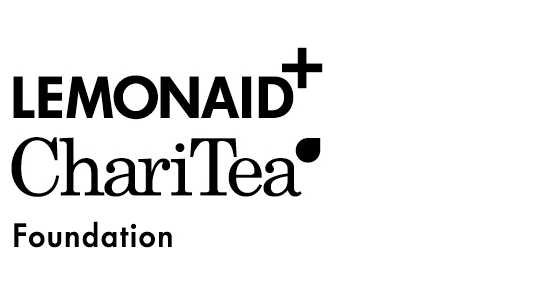The Jyothi Seva Kendra Trust has its roots in the small town Chittapur, located in the rural area of the south Indian state Karnataka. It was founded in 1972 to combat poverty through addressing issues such as unemployment, malnutrition and illiteracy. Emphasis is placed on the emancipation of women. The living conditions in the region are heavily depended on the monsoon. Poor rain seasons have caused heavy droughts over the last consecutive years. As a result the number of people facing precarious livelihood conditions has been augmented. Sometimes whole families have to migrate to the urban centers in the search for work. In the “Gangi Kendra Center” the trust provides assistance, in form of education and sanitation to affected families. The idea to produce fair clothing, to improve the socio-economic positions of disadvantaged women in the region, emerged seven years ago, in co-creation with the designer Jeanine Glöyer. The participating women gain a permanent and fair paid employment through the provision of professional training possibilities. However, in the beginning things were not always working smoothly. Sometimes clothes shrunk or fabrics discolored when they were washed. Today the center is self-supporting. The training offered by the organization, in close cooperation with the non-profit-making organization “Jyoti – Fair Works”, provides a secure income for the women. Jyoti – Fair Works sells the clothes in Germany. 100 percent of the revenues are channeled back to India. They are used to finance further educational trainings, regular health checks, micro-credits and carry the maintenance-costs of the center as well as the salary of the women.

A regular income strengthens the women’s position within the family
In Chittapur the working day begins at ten in the morning and ends at five. The working hours are aligned with the local school hours to enable the women to bring their children from and to school. Consequently, conflicts between working and domestic responsibilities are avoided. The participants draw strength from exchanging experiences and the solidarity within the group members. Social cohesion between the women is high across different religious backgrounds. The group reflects a diversity of different backgrounds that is present in the wider community. Christian, Muslim and Hindu faith are all assembled in the group. Contributing to the family income simultaneously strengthens their position vis-à-vis with their families and husbands. This comes into play especially in decision-making processes, when they can encounter their male family members with heightened confidence. Halima, one of the participants, had to witness how her oldest daughter was married at the age of fifteen. She could prevent her second daughter from having to experience the same fate.“Now I can afford my daughter’s education and I understand how important it is for her to be able to enjoy a self-determined life. She shall first develop a career – possible as a bank manager – only then she shall be married.”While women’s independence is encouraged the project places importance’s with the inclusion of the men. They are invited to join additional training’s concerning topics like health, women’s rights, math, finance and English that are organized on a regular basis by Jyothi. Through this they hope to point out the advantages of more gender – equal structures for the families as a whole. Additionally, Jyothi offers interest-free loans to women that are subsidized by 25 percent when used for educational or health investments. Through the provision of micro-credits the organization also hopes to encourage the women to start their own entrepreneurial ventures. The payback rates are determined by the women themselves to avoid financial bottlenecks. In the past, the women have used the loans for instance to replace old and health damaging stoves with new modern stoves. Within the scope of cooperation with the Lemonaid & ChariTea Foundation, the organizations intend is to broaden their outreach. Therefore, a second training center is to be build and equipped with the needed material and a second track is introduced, allowing the women to be trained as beauticians. In the long run the Indian project aims at becoming less depended on the German partner and create higher incentives for the women to realize their own projects. Jyothi works towards making the life of women in Chittapur less cumbersome, a little lighter. This is how the project came to its name. Jyothi is an Indian girls name that translates to ‘light of the sun’. We are hopeful that this inspiring project will succeed with its holistic vision of a textile industry that emphasizes the harmony of humans and the environment, rather than built on profit.




